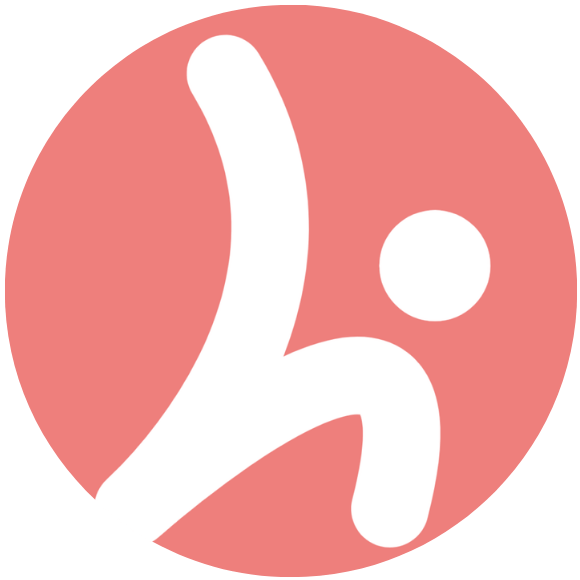How could gamification help solve the problem of the immobility lifestyle affecting Finland's public health? From the presentations at the InnoLab workshop "Well-being individual and productive employee?" led by Sport Finland and KSEOK, it quickly became apparent that most examples related to e-sports and gaming in Finland are found in the world of school-aged children.
Fortunately, the stereotype of digital gaming being solely part of the youth culture is gradually breaking down. "Regardless of age, all Finns play more or less," emphasises Project Manager Kimmo Leinonen, from the City of Espoo, who specialises in digitalising sports and exercise.

Since 2019, Espoo has been systematically developing e-sports and gaming culture for children, youth, and special groups through various projects. The interest is enormous, and results have been achieved. The potential of gamification lies in how target groups perceive the experience: When schoolchildren – playing exercise games with their hearts off – were asked why exercise is so much fun, the answer was surprising. "None of them felt they were exercising but rather playing video games," Leinonen explains.
By 2024, Espoo has implemented over 15 experiments in digitalising sports, exercise, and gaming culture, with some targeted to the adult population. "For example, getting the internationally skilled newcomers to know the city through sports-related activities," Leinonen mentions.
Ideas for gamifying adult exercise
During the workshop, core questions of workplace well-being were discussed, and various existing digital services were linked to digital gaming and exercise for working-age adults. An example is the highly popular "Muuttolintujen kevät" (Migration Birds Spring ) app, where artificial intelligence identifies bird species from a human-made sound recording. Could gamifying observation-based ideas like this encourage people to lead a more active daily life?
 We asked two participating professionals for their views on the possibilities of gamification for increasing adult activity.
We asked two participating professionals for their views on the possibilities of gamification for increasing adult activity.
"No counting steps"

Cityspotting's Producer and Entrepreneur, Sami Toivanen, has noticed a desire to find simple, universally suitable solutions to tackle physical inactivity. However, he does not believe that "taking exercise breaks" during a workday will lead to permanent changes unless this happens to be precisely what employees have been missing in their everyday lives.
"Instead, I believe that the best results are achieved when people are given the opportunity to find something suitable for them and get excited about it."
"This is also the biggest challenge in organising workplace health activities," he admits.
From the gamification perspective, digitalisation is a good servant, which Cityspotting utilises to campaign for easy-entry activity. You only need a phone for an adventure set in the local environment. The idea is to offer genuine insights, even in a familiar environment – such as one's hometown – to get people moving around. "A person may have passed a certain place or building hundreds of times without ever knowing it or pondering its story. The concrete reward is that they learn something new about the place they are in and may even delve deeper into the subject," Toivanen provides an example.
The content of spots combines history, nature, urban culture and nature, personal stories, and architecture.
"We believe that through the adventure experience, people learn to observe their surroundings in a new way and realise that many places have interesting stories if you just start exploring."
Counting steps or emphasising exercise does not fit into their concept, according to Toivanen.
"We know that some people are motivated by measuring, but we're at the ‘other end’ where too much is not measured. The content encourages activity, and well-being is a natural continuation."
"Activities that consider the whole family"

Kari Kyllönen, Business and Sales Manager at CSE, offering exergaming products and a long-term sports industry professional, emphasises the role of parents in promoting an active lifestyle. Kyllönen is particularly concerned about decreased voluntary utility and everyday exercise, and the rise of performance-oriented thinking.
"Children are being driven shorter and shorter distances to school and hobbies, even though they could walk or bike the distance," he gives an example.
"Those who can afford to do sports in clubs or fitness centres 'perform exercise' there, but otherwise spend a lot of time with mobile devices. In addition, as guided exercise becomes more expensive, more emphasis is cast on people’s everyday activities," Kyllönen ponders.
For parents amid their busy years, exercising can be difficult or occurs at late hours, reducing recovery and rest time. Kyllönen suggests that more joint workplace health options could be developed for families. "For example, fitness centres could also have activities for children, which would get them away from their phones for a while. If desired, the whole family would exercise at the same time."
What if exercise games were accessible to everyone?
Gamification is an excellent way to activate people with different physical activity levels. CSE's exergaming products, iWall and runBEAT, have been hugely popular in schools where they are used. "In one comprehensive school with over 200 students, during a four-month monitoring period, 179 voluntary Cooper tests and just under 250 six-minute walking tests were conducted using runBEAT. The enthusiasm for the tests was so immense that teachers had to restrain the pupils," Kyllönen explains.
The example illustrates how physical activity increases with gamification when the opportunity is made part of the target group's everyday life in a familiar environment. "Could municipalities participate in this and offer indoor-designed digital mobility solutions in libraries or other public spaces? In this way, they would be available to exercisers of all ages and levels," Kyllönen ponders.

Join us in developing gamified movement solutions
Are you looking for partners to develop sports games, other gamified products, services, methods, or solutions related to the topic? InnoLab-jatkot continues at Jyväskylä Startup Factory on April 11. In this workshop, we delve deeper into co-development and gamification based on the ideas obtained from the first workshop.
Check out the workshop content and sign up here!
Photos: Iina Kolari ja Annukka Ollitervo
.png?width=1200&height=400&name=Sport%20Suomi%20logokoonti%20%20(17).png)



